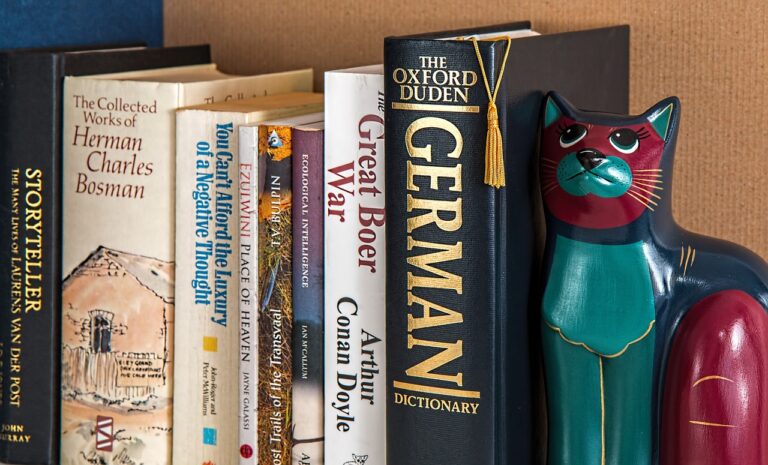The Role of Peer Mediation in Conflict Resolution
Conflict is a natural part of human interaction, and it can arise in various settings such as schools, workplaces, and communities. When conflicts occur, finding a peaceful resolution is crucial to maintaining positive relationships and fostering a healthy environment. Peer mediation is a valuable tool that can help individuals resolve conflicts in a constructive and collaborative manner. In this article, we will explore the role of peer mediation in conflict resolution, its benefits, and how it can effectively address disputes among peers.
What is Peer Mediation?
Peer mediation is a process in which trained students help their peers resolve conflicts through communication, active listening, and problem-solving techniques. This form of conflict resolution empowers individuals to address their disputes in a safe and supportive environment, guided by trained mediators who facilitate the conversation and help parties reach a mutually acceptable agreement.
How Does Peer Mediation Work?
Peer mediation typically follows a structured process that involves the following steps:
- Agreement to Mediate: The parties involved in the conflict agree to participate in the mediation process voluntarily.
- Opening Statements: Each party has the opportunity to share their perspective on the conflict and express their feelings.
- Active Listening: The mediators listen attentively to each party’s concerns and ensure that both sides feel heard and understood.
- Problem-Solving: The parties collaboratively identify the underlying issues contributing to the conflict and work together to find a resolution.
- Agreement: Once a solution is reached, the parties draft a written agreement outlining the terms of their agreement and commit to follow through on their commitments.
The Benefits of Peer Mediation
Peer mediation offers a wide range of benefits for both the individuals involved in the conflict and the broader community. Some of the key benefits include:
- Empowerment: Peer mediation empowers individuals to take an active role in resolving their conflicts and finding mutually agreeable solutions.
- Improved Communication Skills: Participants in peer mediation learn effective communication skills, such as active listening and problem-solving, which they can apply in other areas of their lives.
- Conflict Resolution Skills: Peer mediation helps individuals develop essential conflict resolution skills that are valuable in navigating future conflicts.
- Positive Relationships: By resolving conflicts in a respectful and constructive manner, peer mediation promotes positive relationships and a sense of community.
- Reduction of Bullying and Violence: Peer mediation can help prevent bullying and violence by addressing conflicts early on and promoting a culture of respect and understanding.
How Peer Mediation Can Address Disputes Among Peers
Peer mediation is particularly effective in addressing disputes among peers, such as conflicts between students in a school setting. By involving trained student mediators who understand the dynamics of peer relationships, peer mediation can help parties communicate effectively, gain perspective on the other’s point of view, and reach a resolution that is mutually beneficial.
Moreover, peer mediation encourages individuals to take responsibility for their actions, promotes empathy and understanding, and fosters a sense of unity and collaboration within the peer group. By providing a structured and supportive environment for resolving conflicts, peer mediation can prevent minor disputes from escalating into larger issues and create a positive and harmonious social environment.
FAQs about Peer Mediation
1. What types of conflicts can be resolved through peer mediation?
Peer mediation can help address a wide range of conflicts, including disagreements over friendships, misunderstandings, bullying, rumors, and other interpersonal issues that may arise among peers.
2. How are peer mediators selected and trained?
Peer mediators are typically selected based on their interpersonal skills, ability to remain neutral, and willingness to help others. They undergo training sessions that focus on active listening, communication techniques, conflict resolution strategies, and ethical standards of confidentiality.
3. Can peer mediation be successful in resolving long-standing conflicts?
While peer mediation is most effective in addressing conflicts at an early stage, it can also be successful in resolving long-standing disputes by providing a structured and supportive process for parties to communicate, understand each other’s perspectives, and reach a resolution collaboratively.
4. How can schools and organizations implement peer mediation programs?
Schools and organizations can implement peer mediation programs by establishing a peer mediation team, providing training for student mediators, promoting awareness of the program among students and staff, and integrating peer mediation into the school’s conflict resolution processes.
5. What are some best practices for ensuring the success of peer mediation programs?
Some best practices for ensuring the success of peer mediation programs include appointing a dedicated coordinator to oversee the program, regularly evaluating the program’s effectiveness, providing ongoing training and support for student mediators, and creating a supportive and inclusive environment that values conflict resolution skills.
Overall, peer mediation is a valuable resource for promoting positive relationships, enhancing communication skills, and creating a harmonious environment where conflicts can be resolved peacefully and constructively. By empowering individuals to address their disputes directly and collaboratively, peer mediation plays a vital role in building a culture of respect, understanding, and unity among peers.







